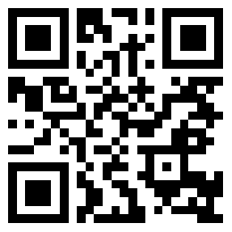西悉尼大学教授: 面对疫情 “人最重要”—没有例外
(编者按:成立于2016年的西悉尼大学澳中艺术与文化研究院位于西悉尼大学内。学院的宗旨是为促进澳大利亚、中国及汉语文化圈,包括台湾、香港、新加坡和其它中华文化中心的文化交流以及推动不同国家和地区之间在艺术和文化领域的合作发展。是澳中文化交流的枢纽、资源中心,以及艺术与文化 协作的平台。


学院的首任院长是本文作者梅卓琳。现任院长是曾把《非诚勿扰》翻译成英文并在澳大利亚亚热播的著名翻译家韩静教授。本文英文原稿及中文翻译稿来源于韩静教授 ——智森)
“人最重要”—没有例外
梅卓琳
翻译:澳中艺术与文化研究院研究员任翔博士
冠状病毒疫情让人们展现出最美好的一面,但有些人却在恶意“甩锅”、抹黑他人。华裔澳大利亚人正在成为抹黑攻击的对象,被指责缺乏爱国精神,甚至涉足违法勾当。
全球疫情需要全球解决方案。在抗击疫情中,澳大利亚有机会与中华人民共和国更密切地合作,并避免两国关系降至新低。
在接受英国广播公司BBC采访时,坎特伯雷大主教罗文·威廉斯说出了每个人心中对安全社会的渴求。他认为这一特殊时期让人们可以静下来思考“什么最重要,以及谁最重要”。澳大利亚人如今被隔离家中,他们首先想到家人、朋友和同事;作为移民国家的一员,他们自然也会牵挂在纽约、马德里或香港的亲朋故旧。随着COVID-19病毒在全球蔓延,此时所有澳大利亚人都希望与所爱之人在一起——无论身在何处,并以各种形式帮助他们共度艰难。而隔离在家的现实,让人强烈感受到无助与无力。
华裔澳大利亚人,占总人口5%,自去年12月下旬武汉爆发病毒以来,就一直承受着这种来自家庭和社区的压力。现在,澳人对欧美亲友的牵挂广受同情,但中国社区所经历的煎熬却很少获得支持。在今年1月和2月,出现了令人震惊的种族主义报道,嘲讽侮辱当地华人,以致总理不得不出面力挺华人社区。然而,反华情绪依然存在,并在堪培拉和其他地方的鹰派中蔓延。
费尔法克斯媒体发表了系列报道,曝光澳洲中资企业在今年2月将医疗物资运回中国,以帮助抗击Covid-19病毒。其中最新的一篇, 由尼克·麦肯齐和安东尼·加洛韦撰写,发表于4月2日的《悉尼先驱晨报》。有意思的是,这些文章中提及的华商邝远平,目前正在组织从中国运送医疗设备和物资到澳大利亚,以协助澳大利亚抗击疫情。对此,麦肯齐和加洛韦的评论是,它是中国共产党的软实力扩张,借用医疗物资来对澳大利亚实施政治影响。
COVID-19首先在中国爆发。中国政府采用了强硬而严格的手段来诊断、控制和治疗冠状病毒,目前来看这些手段取得了效果,至少中国比其他国家更快、也更早地走出了病毒紧急状态。中国目前正在积极地为世界各国提供医疗设备和卫生产品,并将经验技术与世界分享,而全球一半国家正面临着医疗资源的短缺。比如,本周中国向巴勒斯坦提供了1万个病毒检测包,还有呼吸机,并派遣了医疗队来协助当地医生。
这种援助应该受到欢迎,但与此相反,西方国家正在出现令人担忧的举动,试图阻止人们接受中国援助与建议。媒体也对中国病毒检测盒的质量问题大加渲染(问题似乎是:有些产品是私人进口的,并非中国政府援助计划的一部分;中国官员表示,这些产品来自未经政府认证的工厂)。美中两国正处在关于病毒爆发的相互指责和推卸责任的论战中,澳大利亚如果明智的话,不该卷入其中;但是堪培拉似乎并未认清形势。高级记者克里斯·乌尔曼说"这是一个公平的赌注,大部分得到的信息是:病毒源于中国,当地极权政府的第一反应是撒谎,而澳大利亚太相信这个不可靠的国家了。”
面对冠状病毒流行,世界各国政府正在走向闭关锁国,这是令人遗憾的结果。联合国意识到了这种危险,并于本周发布了抗击COVID-19的新计划。联合国秘书长安东尼奥·古特雷斯认为 “这是联合国成立以来的最大考验,当下全世界需要的是团结。团结一心,我们才可以战胜病毒,建设一个更美好的世界。”
梅卓琳是悉尼大学的客座教授,西悉尼大学和UTS的兼职教授。她曾以外交官身份在中国大陆和香港任职。她是澳大利亚勋章获得者和澳大利亚国际事务研究院研究员。
(原稿发表在John Menadue – Pearls and Irritations)
英文原稿:
“People Matter” – Let’s Not Make Exceptions
Jocelyn Chey
Originally published on John Menadue – Pearls and Irritations
The corona virus emergency should bring out the best in people, but in some it is causing vicious blame-sharing. Fingers are being pointed at Chinese Australians and accusations levelled of lack of patriotism and even illegal activities.
This global epidemic requires global solutions. Australia has a chance to work more closely with the People’s Republic of China to this end and should avoid relations sinking to a new low.
Reflecting on our universal desire to live in a safe society, philosopher and former Archbishop of Canterbury Rowen Williams comments in an interview for the BBC that this period is a chance for people “to settle down and think what matters to them, and who matters.” Isolated in our homes, Australians think first of their family, friends and colleagues, but also, as citizens of a maritime nation, of their relatives and contacts across the seas in New York, Madrid or Hong Kong. As the viral wave of COVID-19 infection spreads across the globe, all Australians wish they could be closer to those they love, no matter where they are and could help in some way. Penned in their own homes, they fight feelings of powerlessness.
Chinese Australians, who make up five percent of the population, have been feeling this pull of family and community since they first heard of the virus outbreak in Wuhan in late December. Now there is sympathy for other Australians with relatives and friends in Europe and America, but support for those in distress in China has been notably absent. There were alarming reports of racist taunts and abuse of local Chinese throughout January and February, prompting the Prime Minister rather belatedly to state that the government placed a high value on the country’s ethnic Chinese community. Nevertheless, anti-China feeling persists and it seems is being fanned by hawkish lobbyists in Canberra and elsewhere.
The Fairfax media have published several articles recently about Chinese Australian-owned businesses back in February organising shipments of surgical gloves and other medical supplies to help the Chinese fight against the Covid-19 virus. The most recent article by Nick Mackenzie and Anthony Galloway appeared in the Sydney Morning Herald on 2 April. There are reports elsewhere that the same businessman, Yuanping Kuang, named in this article, is now organising for supplies of medical equipment from the PRC to assist efforts to control the epidemic in Australia. Mackenzie and Galloway allege that this is at the direction of the Chinese Communist Party and part of a PRC soft power campaign to exert political influence in Australia.
The first outbreak of COVID-19 was in the PRC. There government measures to diagnose, control and treat it were heavy-handed, but results have shown them to be effective so that the country will recover more quickly and sooner than the rest of the world. Having stepped up production of medical equipment and hygiene products, the PRC has material and technology to share with others, and half of the world is desperately short of supplies. This week China has sent 10,000 virus kits and ventilators to Palestine, for instance, and is considering sending a medical team to assist local doctors.
Such aid should surely be welcome, but, rather, there is a growing concerted effort in the West to discredit the PRC and turn people against accepting its aid and advice. The media is making much of the fact that some PRC masks and virus testing kits are of inferior quality. (It seems some may have been privately imported and not part of a Chinese government aid package, and PRC officials have said that they originated from factories that were not certified by the government.) The US and China are engaged in tit-for-tat rounds of recriminations and blame for the outbreak and spread of the virus. It would seem wise for Australia not to involve itself in this unproductive argument, but that apparently is not understood in Canberra, where senior journalist Chris Uhlmann states “It’s a fair bet that the bulk of the population has got some key messages: that this threat came from China, that its totalitarian regime’s first reaction was to lie and that Australia is far too reliant on an unreliable nation.”
One regrettable result of the corona virus epidemic has been that governments everywhere are pulling up drawbridges and retreating into national isolation. The dangers of this approach are recognised by the United Nations, which this week launched a new plan to counter COVID-19. UN Chief Antonio Guterres described it as the “greatest test that we have faced together since the formation of the United Nations.” “What the world needs now is solidarity. With solidarity we can defeat the virus and build a better world”.
Jocelyn Chey is Visiting Professor at the University of Sydney and Adjunct Professor at Western Sydney University and UTS. She formerly held diplomatic posts in China and Hong Kong. She is a member of the Order of Australia (AM) and a Fellow of the Australian Institute of International Affairs.








 +61
+61 +86
+86 +886
+886 +852
+852 +853
+853 +64
+64


